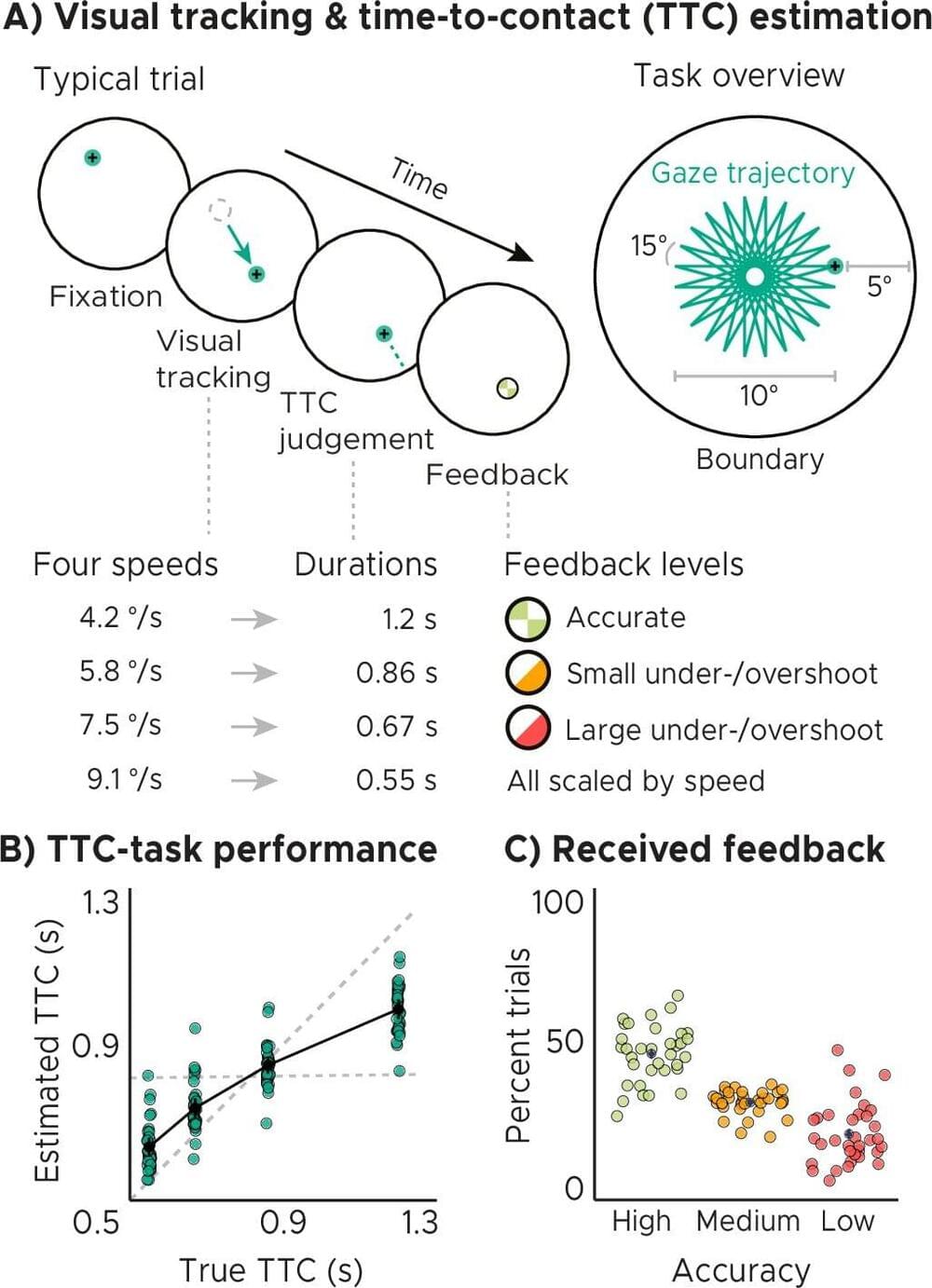It’s important in sports and in interpersonal relationships—perfect timing. But how does our brain learn to estimate when events might occur and react accordingly? Scientists at MPI CBS in Leipzig together with colleagues from the Kavli Institute at the Norwegian University of Science and Technology in Trondheim were able to demonstrate in an MRI study that our brain learns best in connection with constructive feedback.
Imagine playing a game with friends, where they throw you a ball that you must catch. The first couple of throws you might miss the ball, but as you keep trying, you become better at estimating the time it takes to reach you and catch it more easily. How does your brain do this? “Fundamental to this process are your abilities to learn from past experiences and to extract time-related information from the environment,” explains Ignacio Polti, who conducted the study now published in the journal eLife together with Matthias Nau and Christian Doeller.
“Every throw of your friend will be slightly different from the previous one. Some balls arrive earlier, some arrive later. During the game, your brain learns the distribution of arrival times, and it uses this information to form expectations for future throws. By combining such prior knowledge with specific information of our friend’s current throw, we can thus improve the timing of our catch attempts.”
